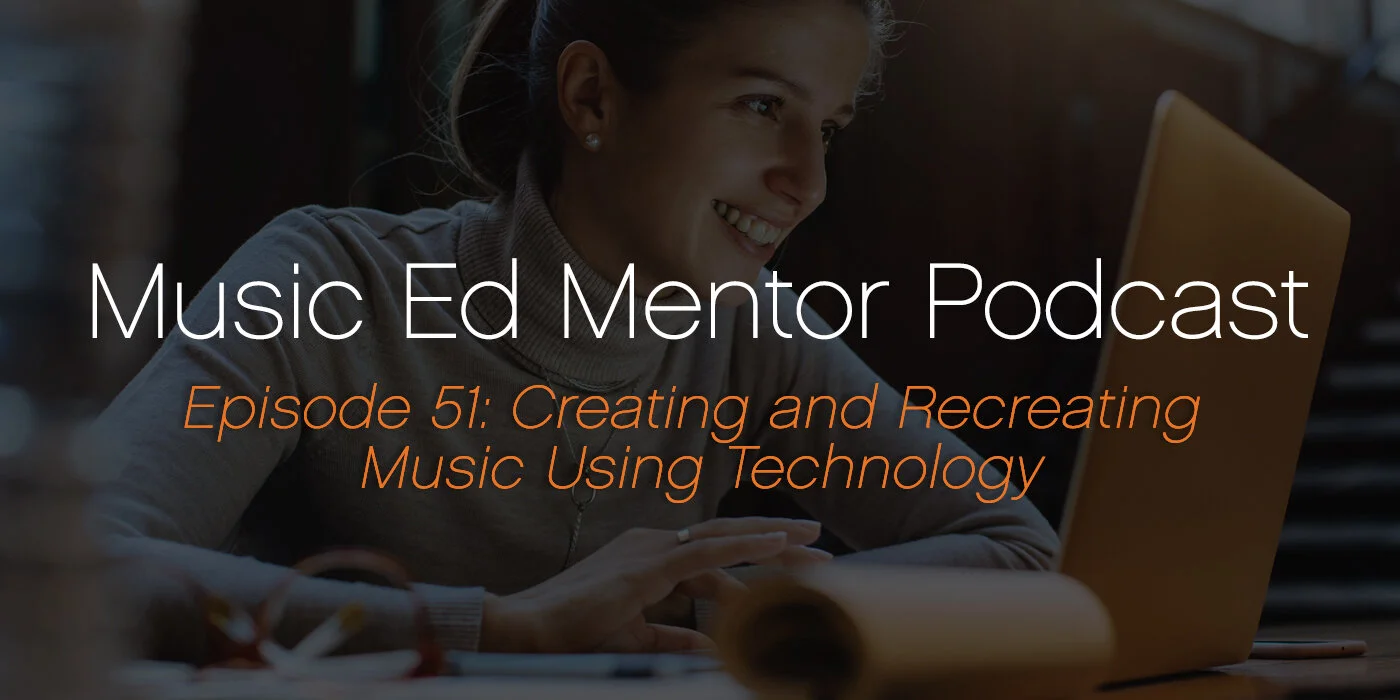I want this story to inspire you, so I want you to hear it from him. Jake Douglass, today’s guest, was raised by affluent parents, and was introduced to music at a very young age. Throughout childhood, he studied Suzuki flute, piano, saxophone, voice, and percussion. He still practices drums for hours each day despite a busy schedule founding and running a music education company.
Read MoreTopics Covered
How to get connected to the larger music industry
How educators can take advantage of music industry resources
What is the NAMM Show (and why you should go)”
Careers in the music industry
Topics Covered
Why don’t students practice at home over break?
How you can keep them engaged
The benefit of running “challenges”
How to get technology working for you, not against you
Topics Covered
What is “Comparanoia™”?
How to avoid imposter syndrome
Finding ways to celebrate yourself
Simple, every day techniques for supporting yourself
Topics Covered
Why are conferences worth it?
What you can expect to learn or experience at the NAfME conference
Finding social-emotional learning resources
Your colleagues’ favorite part of professional development conferences
How to make life-long connections at conferences
Topics Covered
What is social-emotional learning?
How you can incorporate SEL for any age
Finding social-emotional learning resources
Why is it important to include SEL in your classroom?
How to start using social-emotional learning
Topics Covered
Build Your Audience Locally
How to Get Gigs
Connecting with Your Audience
Arranging for Your Group
Travel Tips
Key Takeaways
Treat teaching lessons like a business rather than a hobby.
Lack of time and money are the biggest sources of educator stress and burnout. Educate yourself to run a teaching business not only to be a great teacher but also to make the most effective use of your time and money.
Wendy’s book Music Teaching Made Profitable is a great resource.
You can also book a free 30-minute strategy consultation with Wendy!
Key Takeaways
Teaching is hard work. Being responsible for hundreds of children every day takes a lot of physical and mental stamina. If teachers are going to build successful music programs without burning out, they need to have resources and strategies to sustain themselves so they can thrive and help their students do the same in the classroom.
What happens during the first four minutes of your class sets the tone for how productive the rest of the class will be. This episode includes a few key strategies for setting your rehearsals up for success before you even play a note.
Key Takeaways
Spoiler alert! At the risk of ruining the suspense, I think the real key is to stop taking care of yourself.
Here are some time-tested ways to do just that:
Get less sleep and rest
Emphasize poor nutrition in your diet; especially avoiding whole foods
Replace exercise and mediation with more social media ranting
Do more! Be sure to say YES to everything anyone ever asks you to do
Never take a break from music. Not in the car, while you sleep, or in the shower. Never.
Be certain no one appreciates you, even when evidence suggests otherwise
And most importantly:
Remember to take EVERYTHING, including yourself, VERY seriously
Key Takeaways
Awards are a great way to get funding for your program.
If you’re doing something other people aren’t, you can capitalize on it by applying for awards.
Not only does your program receive the award funding, it gets recognition, too.
Key Takeaways
Setting up your day right is setting up your life right.
New projects and creative avenues are a great way to re-energize your teaching career.
Think about the big question right before bed and wake up with the answer.
Key Takeaways
Have procedures/consequences in place
Self assess every day. Celebrate the successes, and research how to improve the rest
The first ten minutes of the year are critical
Can we practice some of the same concepts that minimalist gurus teach, in our classrooms, and in our lives? If we can, how could our practice as educators improve? What areas should look at first for minimizing?
And what if we can’t bear to toss the thousands of cards our sweet students have given us over the years?
Read MoreKey Takeaways
Plan, implement, and evaluate rehearsals. Then rinse and repeat.
Model the behavior you want to see in your students
Demonstrate HOW to practice in class.
Use SmartMusic as visual and aural aid in class every day.
Build a culture of practice.
Assign the content and excerpts worked on in class at the desired tempo.
Set expectations for your students regarding practice.
Listen to student recordings and provide feedback.
Key Takeaways
Use first what your district says you must use first. That will make your life easier.
Find what you have and use what you have, even if it’s only a little and only if it helps you and your students.
Teach to your strengths. What do you do that you can use technology with?
Key Takeaways
Use the STEAM Process: Investigate, Discover, Connect, Create, Reflect
It’s all about Intention!
Intentionally select standards from both content areas
Purposefully teach both of those standards throughout the lesson/unit
Deliberately assess both content areas through the naturally-aligned standards

















